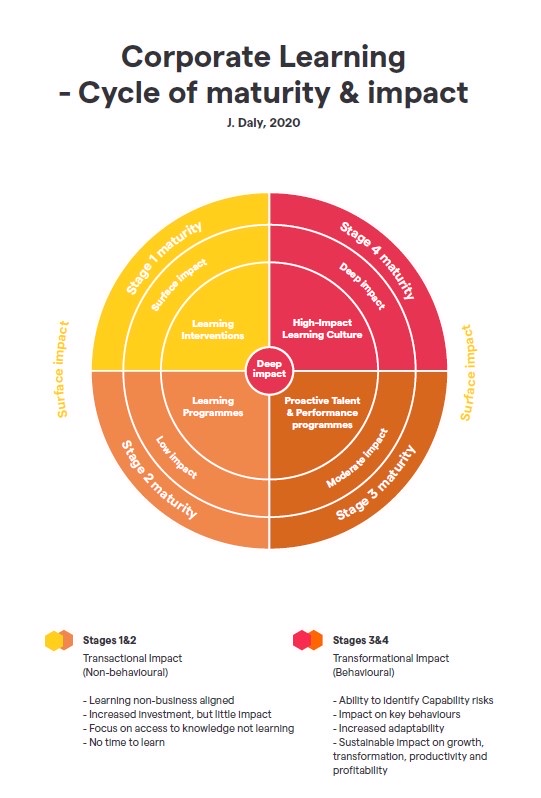
By Sarah Mian, Head of Learning Content, Access Learning
Businesses are under strain right now. The UK’s economy is expected to remain in recession until summer 2023, according to forecasts from EY.
This adds to an ongoing talent crisis, skills shortages, and the ever-present challenges associated with hybrid work. Leaders start 2023 with the challenge of leading their organisation through this tricky period, ensuring that their workforce enjoys a positive employee experience and that business growth is maintained.
When it comes to learning and development, leaders cannot afford to take their foot off the gas. Approaches to professional development should continue to evolve within organisations, aligning priorities with the challenges that lie ahead in the business and economic landscape. Leaders should prioritise impactful learning in 2023, creating a culture that puts learning for professional and personal growth first.
 The current state of play: A lack of learning maturity
The current state of play: A lack of learning maturity
Creating an impactful learning culture is all about ensuring that employees are getting the maximum possible benefit from any learning tools they access. This can be demonstrated through which offers a visual demonstration of the culture surrounding an organisation’s learning and development practices and beliefs.
Organisations that are in the first two stages of learning maturity will see very little impact from the learning and development interventions or programmes they have implemented. Employees in these organisations may have access to knowledge but aren’t truly learning as the interventions are usually transactional and not aligned with business objectives. Many organisations struggle to surpass stage one of learning maturity, which can lead to skills gaps and issues with retention. This is especially problematic within the current financial climate, as businesses need to leverage every resource possible to encourage growth.
Moving beyond surface impact
Numerous barriers impede organisations from moving towards stages three and four of learning maturity. These stages occur when learning is transformational within an organisation; that’s to say that it has a significant impact on growth, transformation, productivity, and profitability. Accessing these stages requires a shift from learning that has a surface impact to learning that has a deep impact.
For learning to have a deep impact within an organisation, leaders must diversify their learning approaches and incorporate both formal and informal learning. Employees should be empowered to seek out learning opportunities which are personalised and self-directed and driven by employees’ intrinsic motivation to grow rather than extrinsic mandates from management. It is only when we empower this self-directed learning approach do we unlock the full benefits of having a high-impact learning culture. Furthermore, by recognising that much learning happens outside of formal learning we combat the perception of lack of time which employees regularly report as a barrier to learning.
The journey from formal to self-directed learning
An integrated Learning Management System (LMS) coupled with relevant and engaging content is great for formal learning. It ensures that the right people are doing the right learning at the right time and provides the foundation for your learning culture. However, this should be built upon with opportunities to carry out personalised and self-directed learning. When content is personalised to your skills or directed by your own interests the motivation to learn is high and this drives engagement and daily interaction. By integrating content with social tools, you amplify the learning further opening up the possibilities of learning from each other. It is only when you validate and encourage all types of learning, formal and informal, that you create a culture of continuous learning.
Ultimately, creating an impactful learning culture is a process of normalising learning as part of employees’ everyday flow of work. Not only is this more convenient for the employee, but is often more engaging, as the employee is driven by the opportunity to reach their potential. In doing so, organisations can empower their people, improve retention rates, and accelerate business growth.




